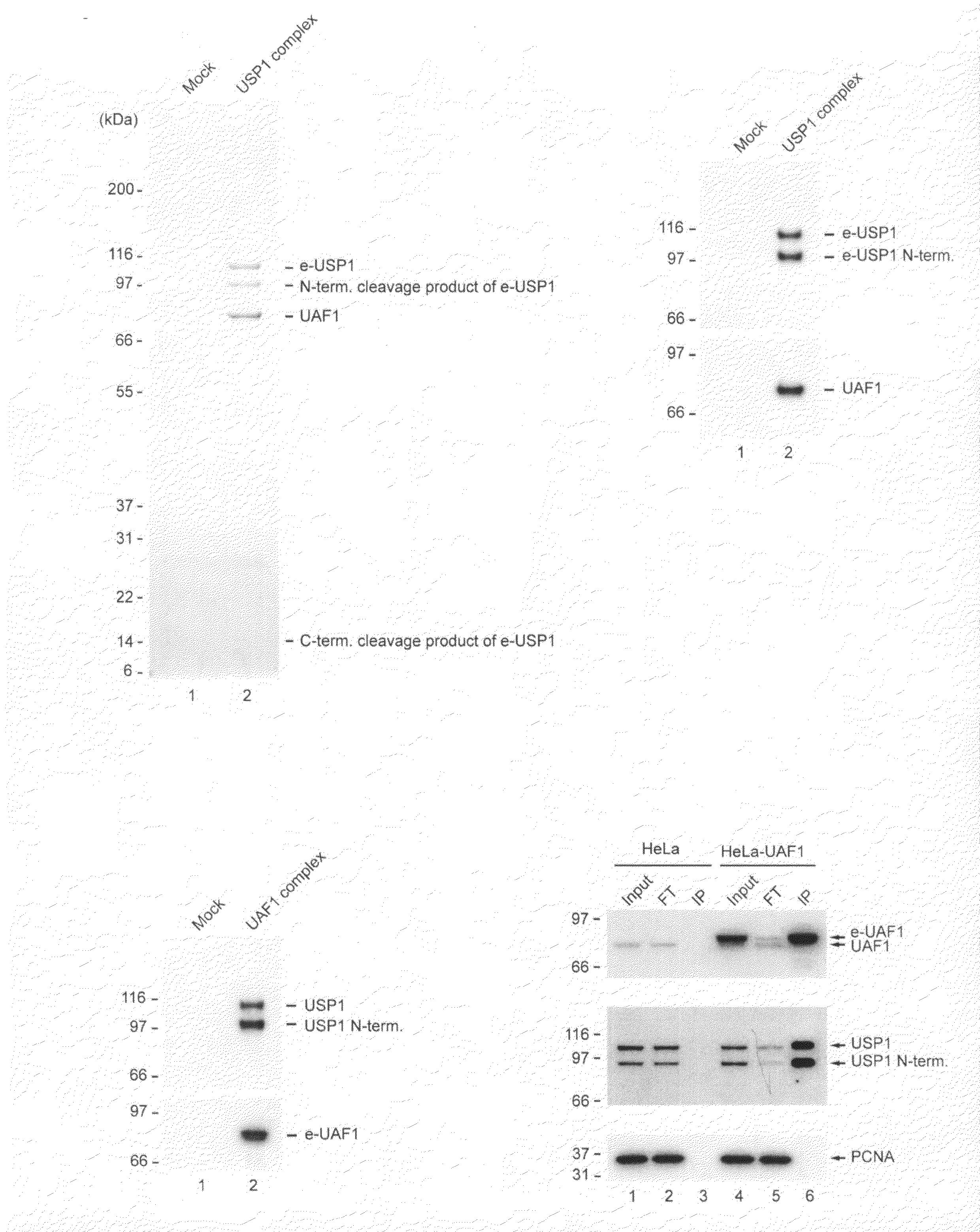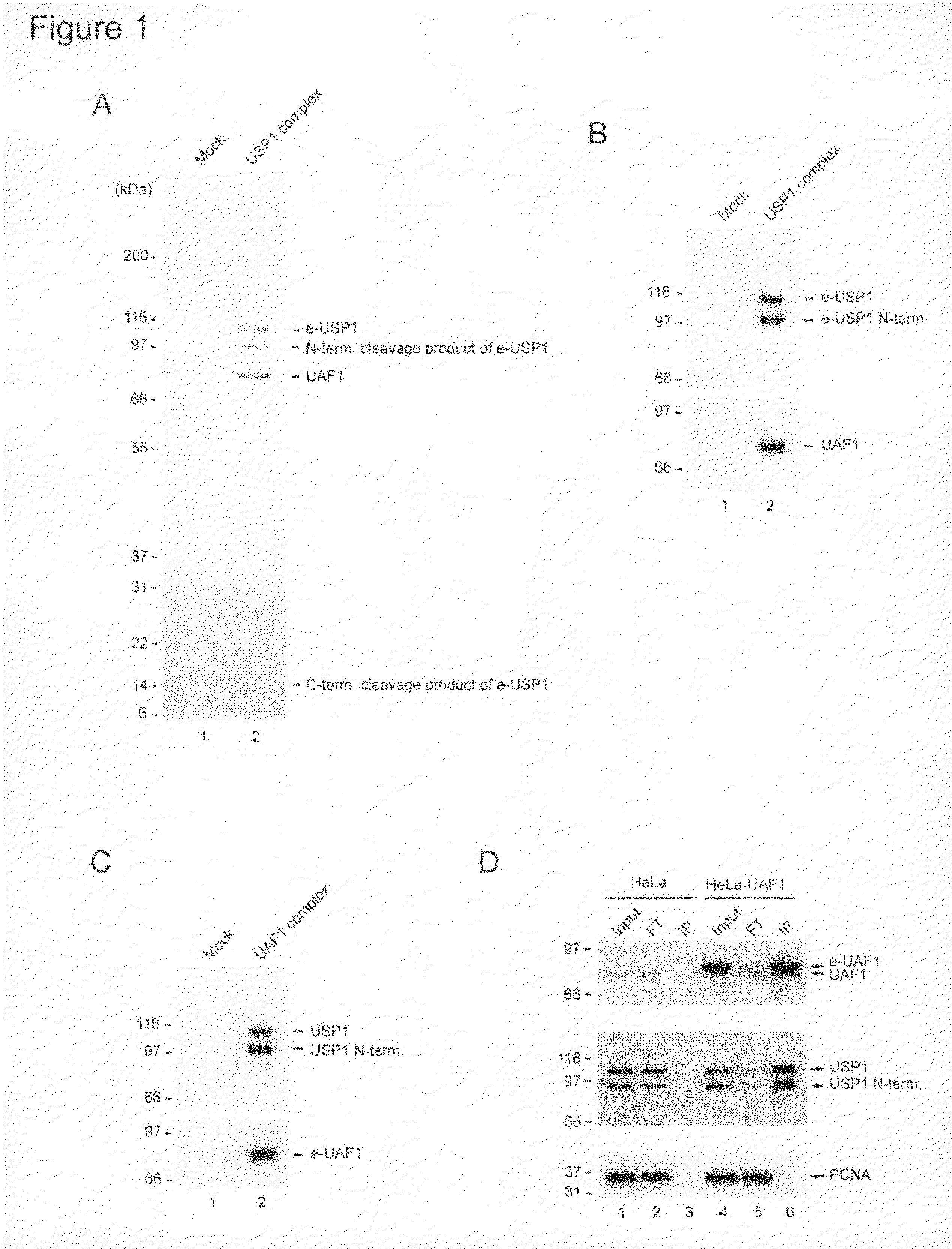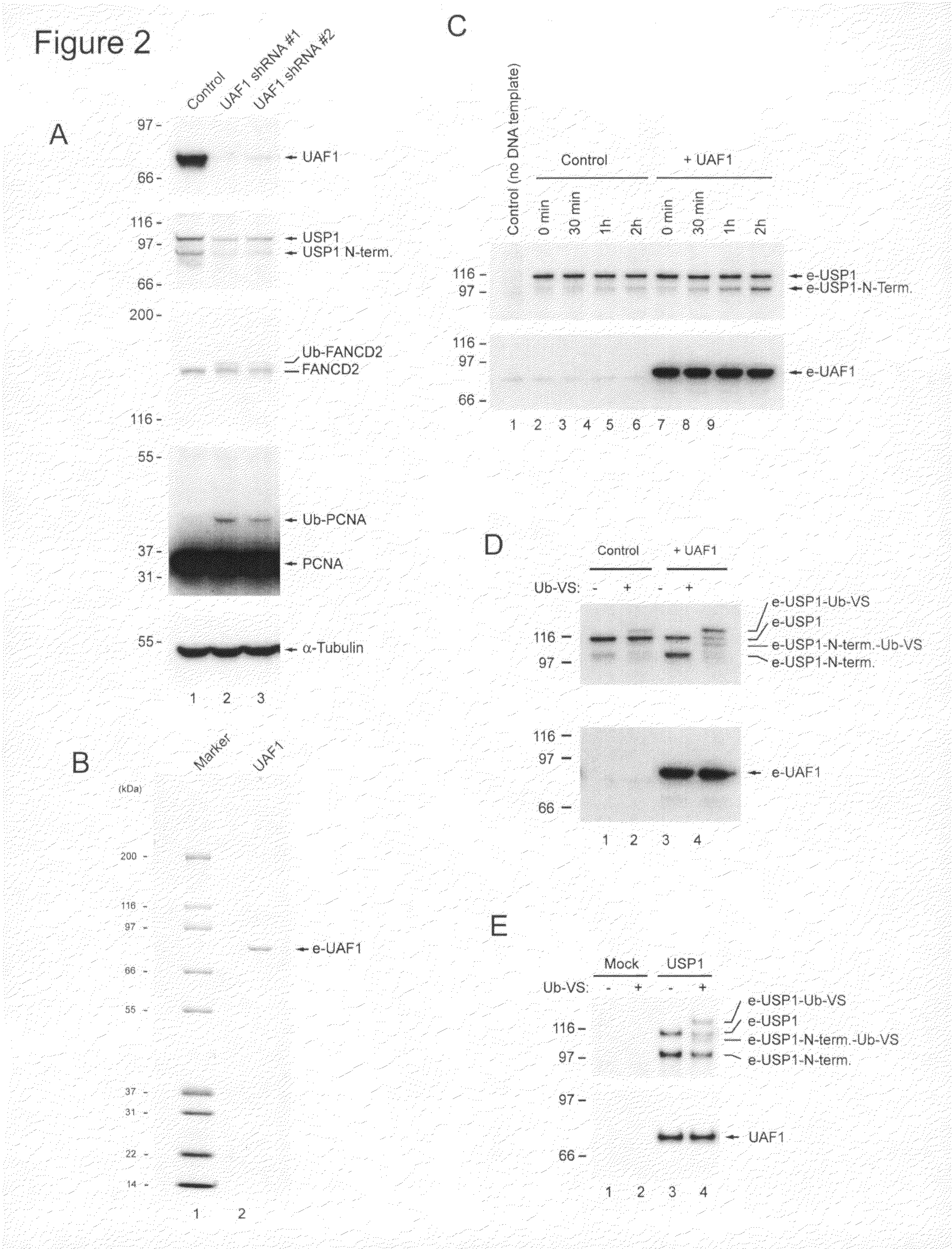Inhibitors of USP1 deubiquitinating enzyme complex
a deubiquitinase and enzyme complex technology, applied in the field of deubiquitinase inhibitors, can solve the problems of limited effect, limited effectiveness of many agents available for protecting human tissues from the damaging effects of ionizing radiation, and limited effectiveness, so as to increase the level of pcna-ub or fancd2-ub, inhibit the activity, and increase the effect of pcna-ub
- Summary
- Abstract
- Description
- Claims
- Application Information
AI Technical Summary
Benefits of technology
Problems solved by technology
Method used
Image
Examples
example 1
Identification of USP1 Interacting Protein UAF1
[0137]The following experiments describe the purification of the USP1 enzyme with associated proteins from human HeLa cells. A native multisubunit protein complex was isolated containing stoichiometric amounts of an 80 kDa protein, which was named USP1 Associated Factor 1 (UAF1). UAF1 is a WD40 repeat containing protein, which regulates both the stability and the activity of USP1.
[0138]Cell Lines, Antibodies and Plasmids
[0139]HeLa and HEK293T cells were grown in DMEM (Invitrogen) supplemented with 10% FBS. Stable HeLa cells expressing a UAF1 knock down plasmid were generated using the pSUPER.retro (Clontech) vector harboring the following UAF1 target sequence: 5′-CAAGCAAGATCCATATATA-3′. Antibodies used were as follows: anti-USP1 antibody (Nijman, S. M., Huang, T. T., Dirac, A. M., Brummelkamp, T. R., Kerkhoven, R. M., D'Andrea, A. D., and Bemards, R. (2005a). The deubiquitinating enzyme USP1 regulates the Fanconi anemia pathway. Mol Cel...
example 2
Production of a Polyclonal Antibody to UAF1
[0177]A polyclonal rabbit antibody was raised against a fragment of the UAF1 protein consisting of amino acids 400-677. A 6×His-UAF1 (400-677) fusion protein was expressed in E. coli and purified over an NTA column. The purified protein was injected subcutaneously into a rabbit with Freund's complete adjuvant in the first injection and Freund's incomplete adjuvant for the following boost-injections.
example 3
Effect of UAF1 siRNA Knockdown on Monoubiquitination of PCNA and FANCD2
[0178]Two siRNAs were identified that inhibit the expression of UAF1 in transiently transfected HeLa cells. The siRNAs had the antisense sequences CCGGTCGAGACTCTATCATAA (SEQ ID NO: 8), and CACAAGCAAGATCCATATATA (SEQ ID NO:9). Immunoblots using the UAF1 antibody of Example 2 showed no UAF1 protein after siRNA knockdown. (Not shown).
[0179]As demonstrated in the experiment depicted in FIGS. 7A and 7B, UAF1 knockdown resulted in decreased expression of USP1 protein. This indicated that UAF1 acts as a stabilizing dimeric partner of endogenous USP1. Experiments were performed using HEK293 cells. The cells were treated with 20 nM UAF1 siRNA for 72 hours. Control experiments treated the cells with 20 nM siLacZ siRNA. The proteasome inhibitor MG132 was added at 10 μM for 2 hours during UV treatment to trap the autocleavage product of USP1 so as to determine the autocatalytic activity of USP1 in the presence and absence of...
PUM
| Property | Measurement | Unit |
|---|---|---|
| molar ratio | aaaaa | aaaaa |
| pH | aaaaa | aaaaa |
| pH | aaaaa | aaaaa |
Abstract
Description
Claims
Application Information
 Login to View More
Login to View More - R&D
- Intellectual Property
- Life Sciences
- Materials
- Tech Scout
- Unparalleled Data Quality
- Higher Quality Content
- 60% Fewer Hallucinations
Browse by: Latest US Patents, China's latest patents, Technical Efficacy Thesaurus, Application Domain, Technology Topic, Popular Technical Reports.
© 2025 PatSnap. All rights reserved.Legal|Privacy policy|Modern Slavery Act Transparency Statement|Sitemap|About US| Contact US: help@patsnap.com



